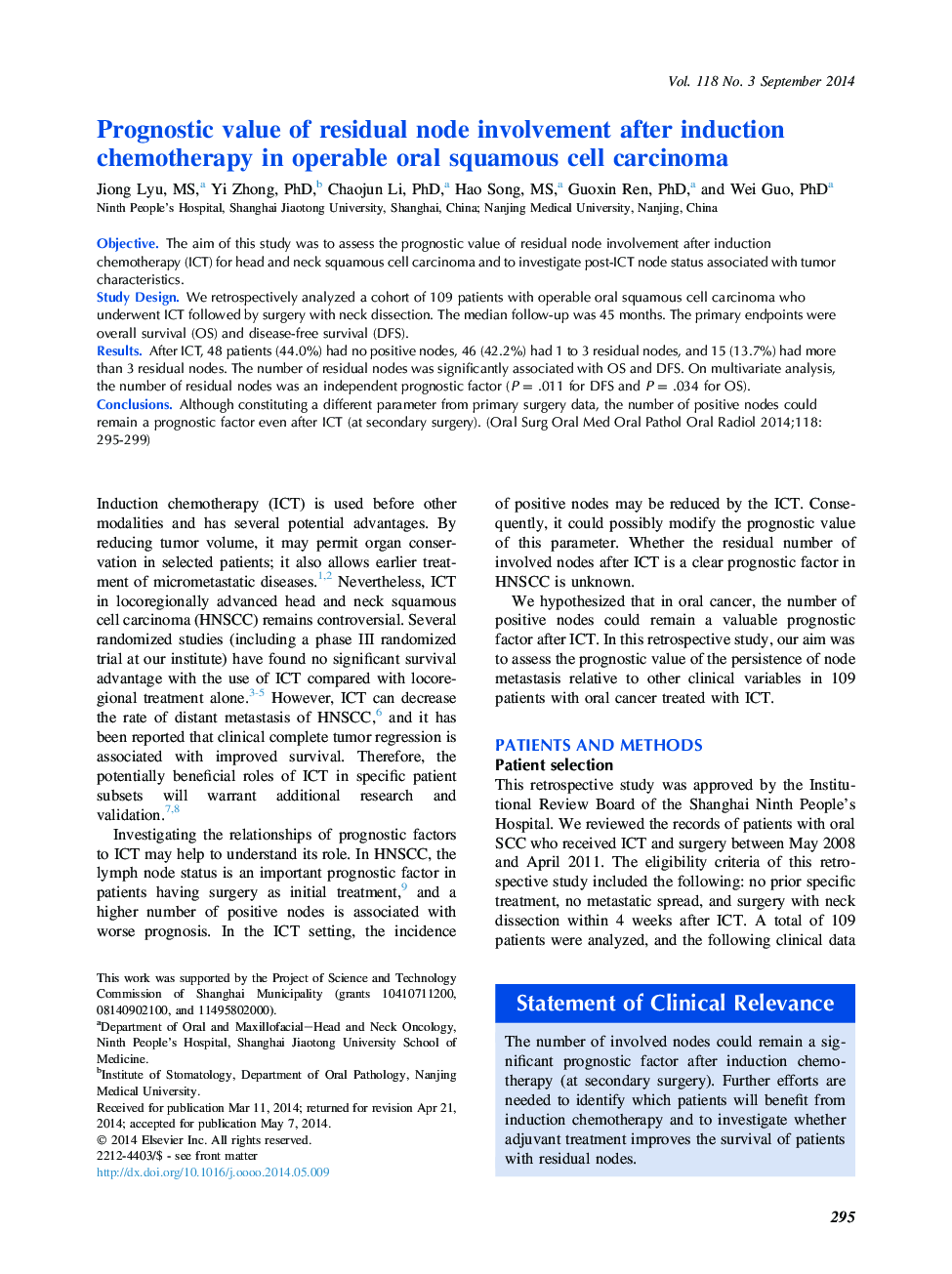| Article ID | Journal | Published Year | Pages | File Type |
|---|---|---|---|---|
| 6055931 | Oral Surgery, Oral Medicine, Oral Pathology and Oral Radiology | 2014 | 5 Pages |
ObjectiveThe aim of this study was to assess the prognostic value of residual node involvement after induction chemotherapy (ICT) for head and neck squamous cell carcinoma and to investigate post-ICT node status associated with tumor characteristics.Study DesignWe retrospectively analyzed a cohort of 109 patients with operable oral squamous cell carcinoma who underwent ICT followed by surgery with neck dissection. The median follow-up was 45Â months. The primary endpoints were overall survival (OS) and disease-free survival (DFS).ResultsAfter ICT, 48 patients (44.0%) had no positive nodes, 46 (42.2%) had 1 to 3 residual nodes, and 15 (13.7%) had more than 3 residual nodes. The number of residual nodes was significantly associated with OS and DFS. On multivariate analysis, the number of residual nodes was an independent prognostic factor (PÂ =Â .011 for DFS and PÂ =Â .034 for OS).ConclusionsAlthough constituting a different parameter from primary surgery data, the number of positive nodes could remain a prognostic factor even after ICT (at secondary surgery).
